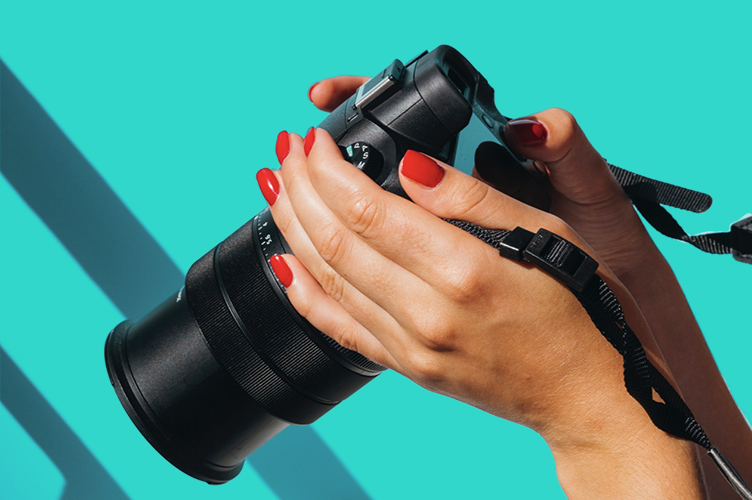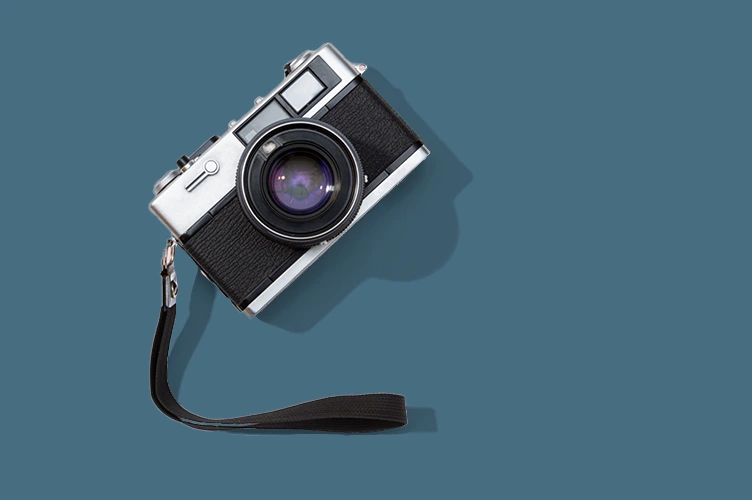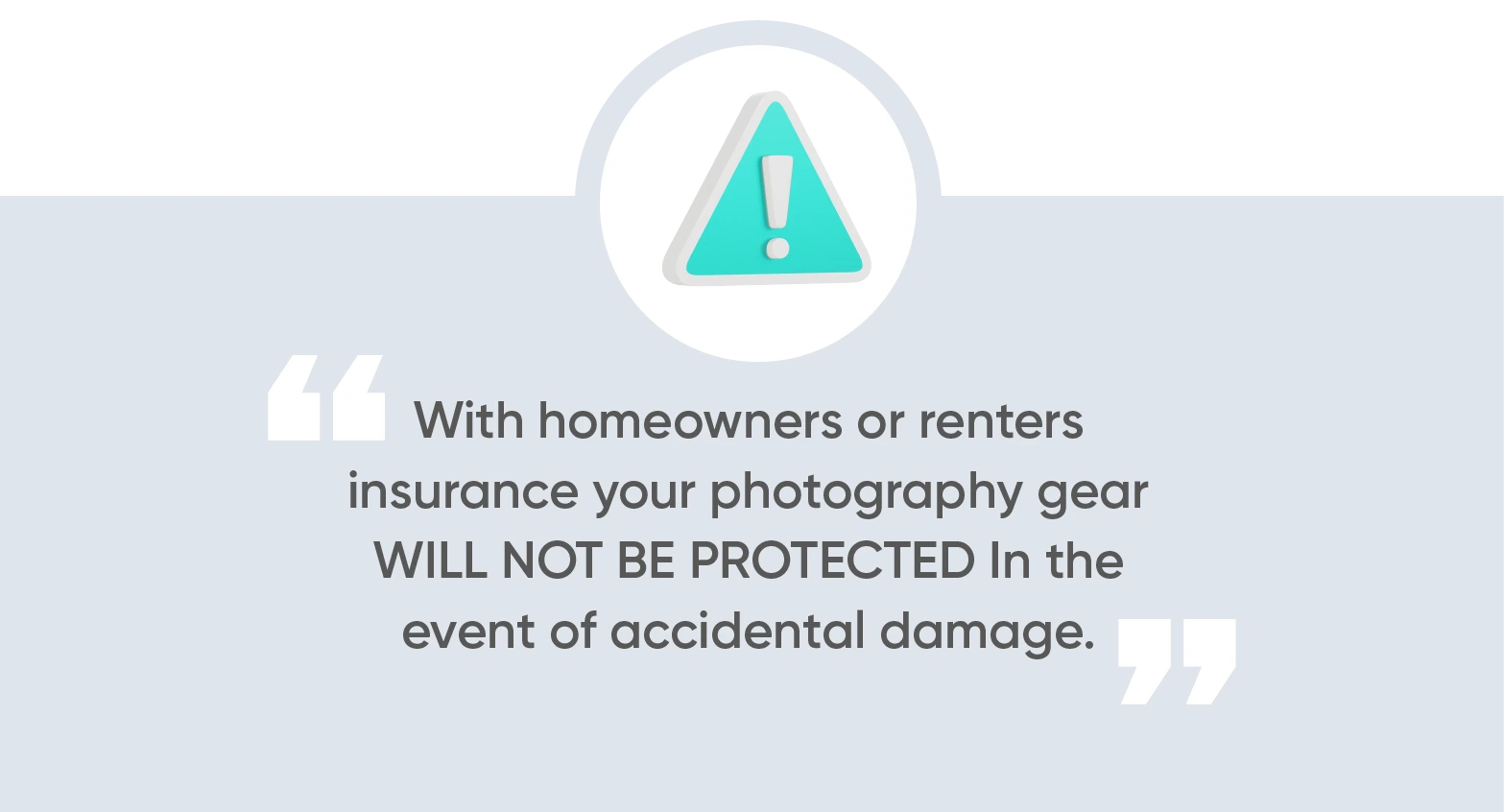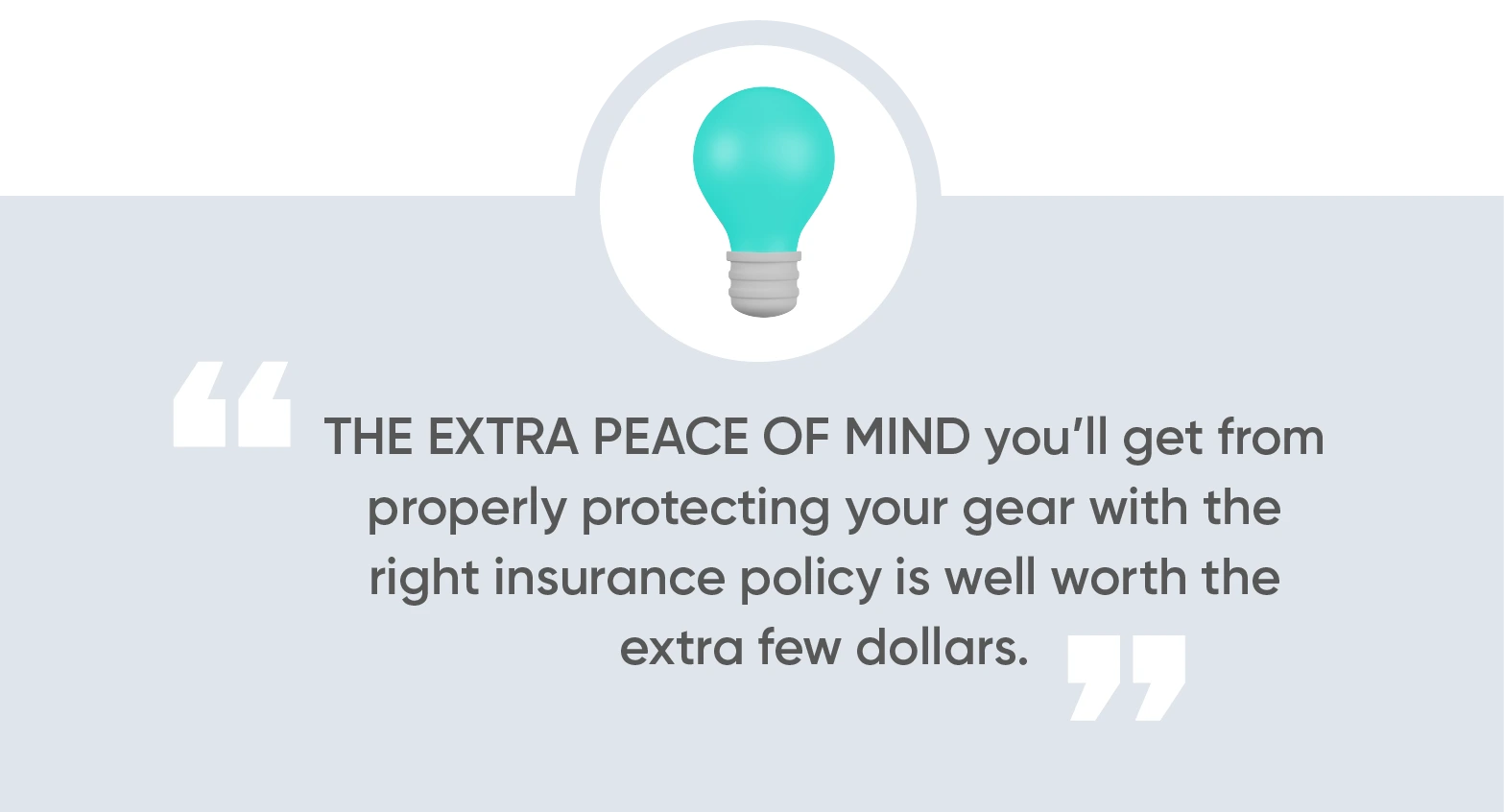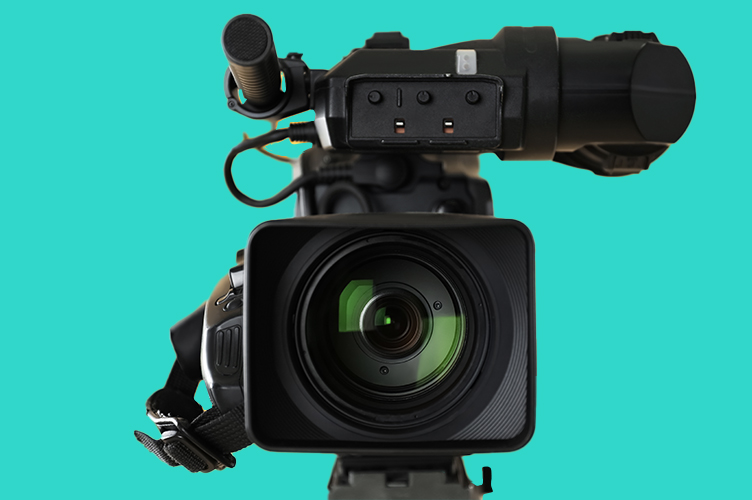Professional photographers aren’t the only ones who need camera equipment insurance. If you have pricey tech lying around your home, you need to protect it, from laptops or gaming computers to, yes, camera gear.
Just think — what if someone breaks into your home and steals your camera? What if there’s a natural disaster and your camera sits under water for multiple days? What if you drop your camera into the pool while trying to catch that perfect shot of the kids? If you value your photography equipment, you’ll want it to be protected in all of the above situations and beyond. Here’s what you need to know about camera insurance.
What You Will Learn
What Exactly Does a Camera Insurance Policy Cover?
Not sure if you really need camera insurance? You might be convinced after you realize what all camera insurance protects and how it can protect your photography equipment in a range of situations.
Typically, an average camera insurance policy will keep you covered in the event of…
- Accidental damage to your camera gear
- Theft of your camera gear
- Damage to your camera gear caused by natural disasters
Depending on your individual camera insurance policy or your existing insurance company’s policy (if you want to rely on an existing plan), there may be some extra coverage or a few caveats. However, most policies will not protect you in the event of damage or theft caused by negligence.
Will My Current Insurance Company Policy Protect My Camera?
So, that said, you may already have an insurance policy that covers your camera gear to some degree. Here’s what to keep in mind.
Have homeowners insurance or a renters insurance policy?
If you have homeowners insurance or a renters insurance policy, then your photography equipment will be protected in the event that someone breaks into your home or rental unit and steals your camera. Your gear will also be protected if there’s a natural disaster that impacts your home.
However, your photography gear will not be protected in the event of accidental damage (like it would be if you specifically purchased camera insurance). Similarly, these basic policies typically have a limit to what they’ll pay in replacement value, for any tech. If that limit is more than your camera’s worth, you’ll end up paying the rest of the replacement or repair costs out of pocket.
The good news? Most homeowners insurance and/or renters insurance policies will allow you to add on extra camera insurance or more generalized tech insurance that protects your camera further. This extra coverage is usually available for just a few dollars more than what you’re currently paying and it protects you from accidents, and will provide a greater dollar amount of coverage for your tech.
Have a photography business and general liability insurance?
Professional photographers often work out of their homes. Unfortunately, if you use your camera gear for business, that fact will often void your camera coverage under your homeowners insurance or your renters insurance policy.
So if you can’t rely on your homeowners insurance or your renters insurance policy to protect the camera gear you use for your photography business, can you rely on your business insurance? Well … not really. If you only have the bare basic liability insurance, it won’t protect your photography equipment from damage, loss or theft.
General liability insurance is great for protecting your photography business in the event someone decides to sue you for, for example, falling, tripping and breaking their leg during a photo shoot that you set up, or in the event that someone claims you took a photo of them that could be considered defamation in some way. However, liability insurance is only there to protect you if a third party tries to make a legal claim against your business.
For truly protecting your photography equipment, separate insurance is a necessity. As a business, the type of photography insurance you’ll need may differ according to the nuances of your business. For example, you might need inland marine insurance to cover high-value equipment that you take on the go. You might need insurance coverage to protect you while traveling internationally, specifically. Talk to your current business insurance provider to discuss your options.
How Do I Insure My Camera Equipment?
With all of the above considered, are you convinced now that you need to insure your camera equipment? If so, there are a few ways you can go about it, depending on your needs.
If you just want to add extra coverage to your existing homeowners insurance or a renters insurance policy, you’ll want to reach out to your existing insurance company.
If you’re a photography business and you want a policy that will meet your trade’s more specific needs, talk to your existing business insurance provider to learn more about their options.
If neither of the above two routes seem to be right for you, you can also purchase stand-alone, camera gear policies designed to protect your photography equipment from the accidents and potentially harmful situations you’re most likely to find yourself in.
Whichever option you go with, though, if you use expensive camera equipment regularly, there’s no denying that the extra peace of mind you’ll get from properly protecting your gear with the right insurance policy is well worth the extra few dollars.
Camera Equipment Insurance FAQs
Need the quick details and nothing more? We’ve got you covered.
- How do I insure my camera equipment?
You can insure your camera equipment through an existing homeowners, renters or business insurance provider, or buy a separate, camera equipment standalone policy from another insurance company.
- Does my business need photography insurance?
If you use photography gear regularly in any part of your business, whether you’re a full-time wedding photographer or a part-time stock photographer, or a multimedia journalist who just occasionally takes your camera out for photos to accompany a story, you need photography insurance for your business.
- Can I buy stolen camera insurance?
If you’re specifically worried about camera theft, you don’t need to buy a specific stolen camera insurance policy or camera insurance for theft. Instead, homeowners insurance or a renters insurance policy will protect you from camera theft at home, while a standard camera insurance policy will protect you from camera theft outside of the home.
- Is photography insurance expensive?
You can usually tack on extra tech coverage to an existing homeowners insurance or renters insurance policy for just a few dollars more than what you’re currently paying. Even standalone policies, though, are relatively cheap.
Are All Your Valuable Items Truly Covered?
Just like you don’t want to make the mistake of assuming all your tech and photography gear is covered by your existing insurance policies, you don’t want to do the same with your fine jewelry.
BriteCo can help fill in the gaps of your existing insurance. We offer full coverage for your fine jewelry, engagement rings, and luxury watches, whether you’re at home or traveling, whether you run into theft, loss, damage or even mysterious disappearance. See why our 5-star jewelry insurance policies are better than the rest and get your quote today.
Also Check:
How to Photograph Jewelry for Insurance Purposes?
How To Shoot A Jewelry Video | BriteCo Jewelry Insurance

